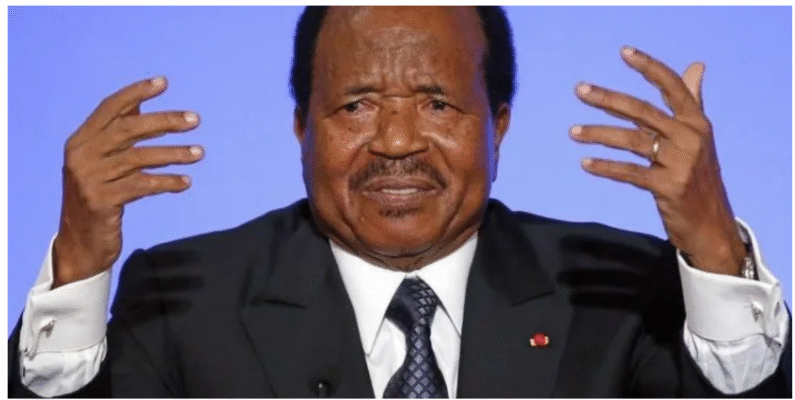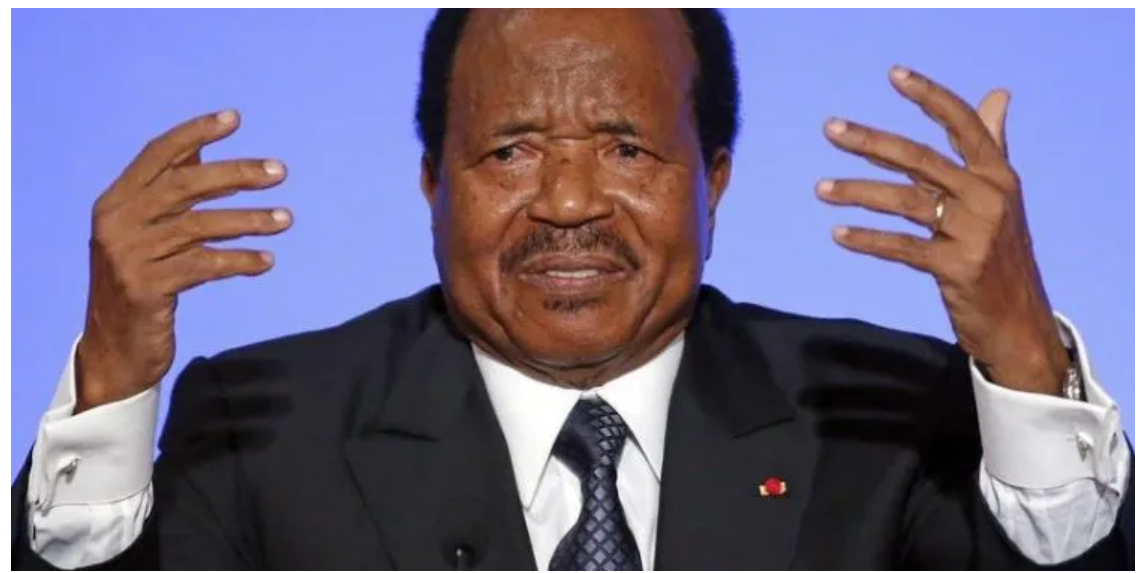
Boko Haram militants launched a heinous attack on the Cameroonian military in Wulgo, a village located along the Nigeria-Cameroon border, on March 24, 2025. That was the same day the Cameroon People’s Democratic Movement (CPDM) was celebrating its 40th anniversary and showering praises on 92-year-old President Biya. This brutal assault killed at least 12 soldiers serving in the Multinational Joint Task Force (MNJTF) to secure the Lake Chad Basin region from terror forces. At least 20 people died, according to some sources on the ground.
Yet, almost four days later, the President of Cameroon, Paul Biya, has remained conspicuously silent, offering no public statements of sympathy, solidarity, or leadership during a time of national tragedy. This silence, particularly when contrasted with his prompt response to lesser casualties in the past, raises serious questions about his commitment to the welfare of the soldiers under his command and the security of the nation he leads.
Biya’s Silence in the Face of Tragedy
The absence of a comment or condolence message from Biya, who also serves as the Commander-in-Chief of the Cameroonian Armed Forces, is both alarming and disheartening. The deaths of these brave soldiers, who made the ultimate sacrifice in defence of their country, demand a response from the highest authority in the land. Yet, there has been no such acknowledgement.
This silence sharply contrasts with Biya’s reaction in 2017, when fewer soldiers died in the Manyu division of the South West Region during an armed clash with separatist militants. Within a matter of days, Biya made his return from a long trip abroad, addressing the nation and the military with his characteristic defiance. He quickly asserted the country’s resolve to suppress the “terrorists” in the English-speaking regions and reassured the public that the security of Cameroon was under control. “The situation is under control,” Biya said. Biya’s swift and confident handling of the crisis was noteworthy, particularly in light of the comparatively smaller number of casualties compared to the soldiers’ massacre in Wulgo.
A Pattern of Inaction
This silence is part of a broader pattern of inaction from the Biya administration. While he has been in power for over four decades, his response to issues of national security and military losses has often been marked by neglect or delay.
During periods of heightened insecurity in the country, such as the ongoing Boko Haram insurgency and the conflict in the Anglophone regions, Biya has often retreated from the public eye, leaving military commanders and lesser political figures to shoulder the burden of leadership.
Even when the president has been present, his actions have often been reactive rather than proactive. His failure to address the root causes of insecurity in Cameroon – from the ongoing insurgency in the Anglophone regions to the persistent threat of Boko Haram in the Far North – has created an environment of frustration among both the military and the public. As many political figures have pointed out, including Michde Ndoki and Maurice Kamto, there is a growing sense that the leadership in Cameroon is out of touch with the needs of the country. Ndoki, in a statement on the killings. said, “We must honour their memory not only with mourning but with action. We need to demand accountability, belter leadership, and a real commitment to securing our nation.”
Contrasts with Other Political Leaders
While Biya has remained silent, several other public figures have stepped forward to express their condolences and demand action. Samuel Eto’o, the former football star, described the soldiers as “brave and courageous” patriots who gave their lives defending the nation. Maurice Kamto, leader of the Cameroon Renaissance Movement (CRM), criticised the failure of the military high command to protect soldiers and called for urgent reforms. Cabral Libii, leader of the PCRN, also joined the chorus of voices demanding accountability, emphasising the need for political leadership to take responsibility.
Akere Muna, former presidential candidate, was particularly vocal about the contrast between the media’s focus on football and the ruling party’s 40th anniversary celebrations while the country mourned its fallen soldiers.
“It is with great sadness that I learn of the heinous and dead)y attack by Boko Haram on a position of our Defence Forces… Cameroon should have reflected on the sacrifice of these valiant compatriots who fell with weapons in hand,” he said
These reactions from opposition leaders and public figures only highlight the absence of leadership from the top. The fact that Biya has remained silent amid such widespread mourning and calls for reform is not just a failure of communication; it is a failure of governance.
A Nation Left to Mourn Alone
The families of the fallen soldiers, as well as the entire nation, are left in the dark as to what the president intends to do in response to the latest attack. Cameroonians are rightfully asking: how can the Commander-in-Chief remain silent when his soldiers are being killed in the line of duty? How can the president remain out of touch with the reality on the ground, Darticulary when it comes to matters of national security.
A Nation Left to Mourn Alone
The families of the fallen soldiers, as well as the entire nation, are left in the dark as to what the president intends to do in response to the latest attack. Cameroonians are rightfully asking: how can the Commander-in-Chief remain silent when his soldiers are being killed in the line of duty? How can the president remain out of touch with the reality on the ground, particularly when it comes to matters of national security?
The president’s failure to respond may only deepen the feelings of frustration and disillusionment that have been growing among the public. In a country that has already suffered from decades of conflict, mismanagement, and insecurity, the lack of visible leadership is both troubling and dangerous.
A Call for Leadership
In these trying times, Cameroon needs strong, decisive leadership that reflects the gravity of the situation. The president must take responsibility and offer condolences to the families of the fallen soldiers. He must address the nation and acknowledge the ongoing threats that continue to undermine the security and stability of the country.
The soldiers who gave their lives in Wulgo, defending the nation against Boko Haram, deserve more than silence – they deserve recognition, respect, and accountability. Their sacrifice should not be swept under the rug of political inaction. It is time for President Biya to demonstrate the leadership that Cameroon so desperately needs.
Until then, the silence of the president will speak louder than any words.

